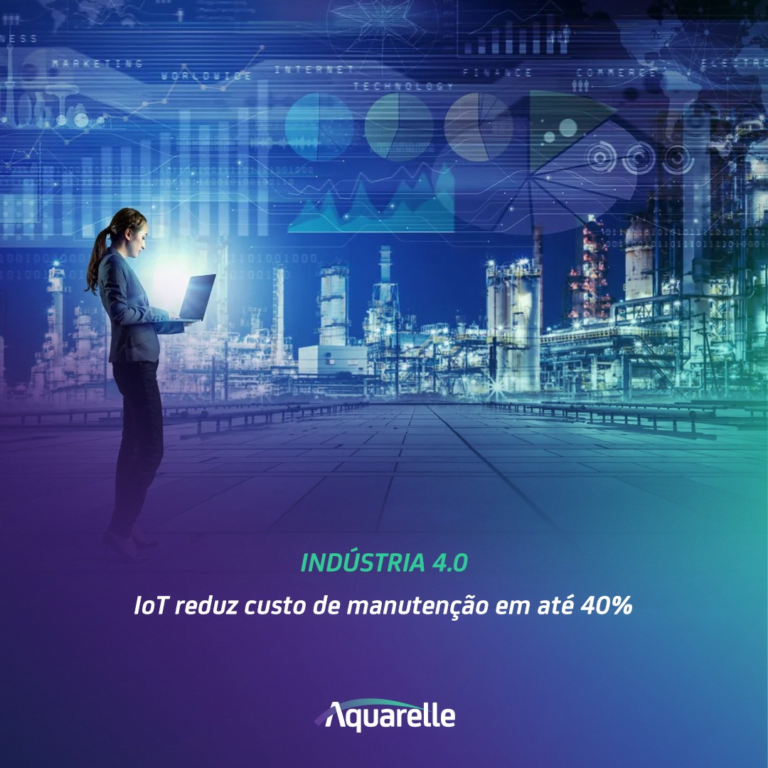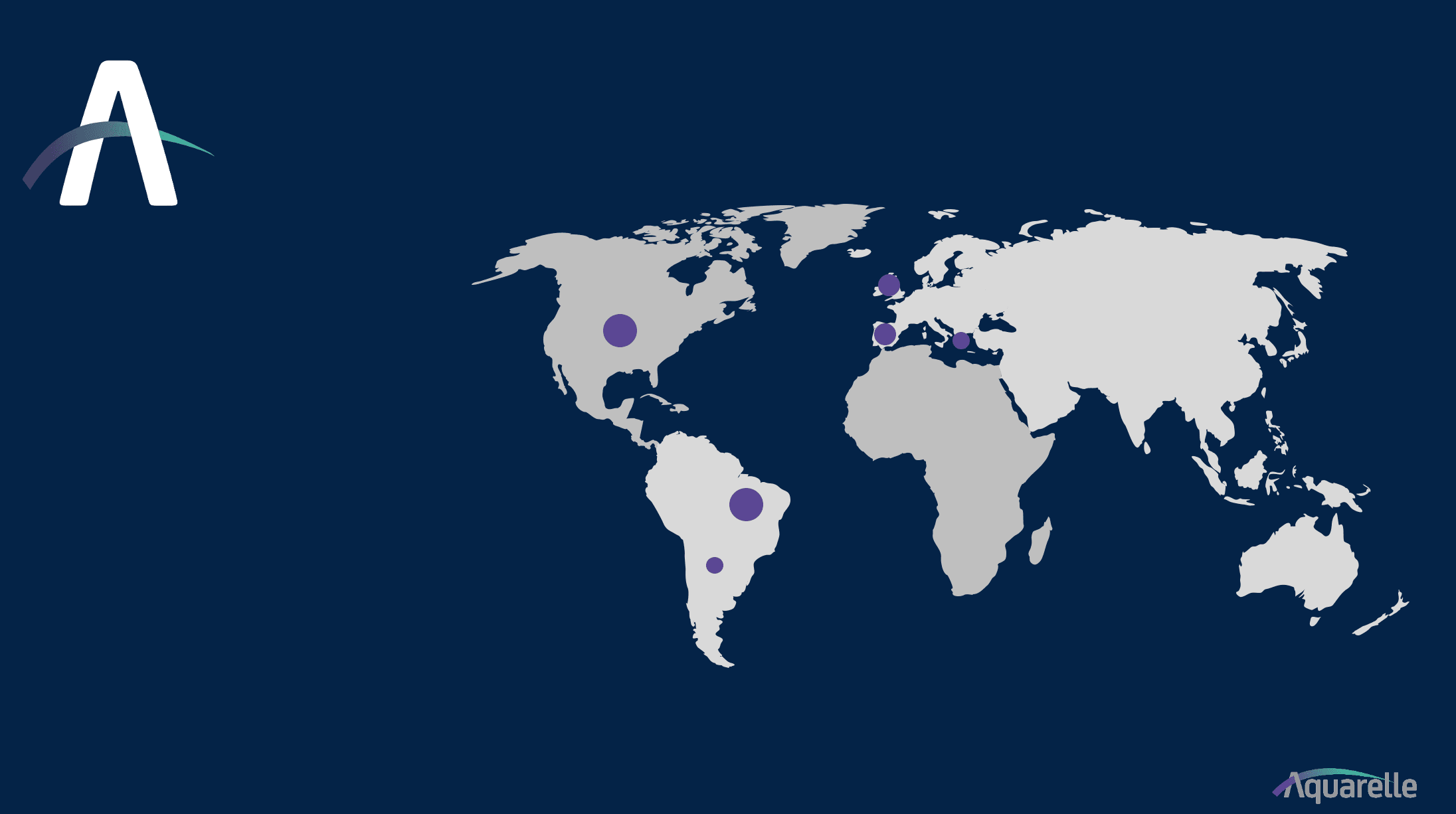According to data from consultancy firm McKinsey, predictive maintenance can reduce machine downtime by up to 50% and increase service life by 20% to 40%.
June/2022 - To circumvent the high degree of uncertainty of the last year, low growth, and other challenges with raw materials, which have become more expensive or difficult to obtain, industries understood that they needed to extract the maximum possible value from their assets - which are the goods over which a company can have control, such as tools, machines and engines, raw materials, IT equipment, among others.
If they are not well looked after, whether in different sectors such as mining, petrochemicals, energy, paper, food, pharmaceuticals or transportation, high maintenance costs can damage profitability.
In order to find new ways to increase the productivity of their operations, some companies have already begun to design their journey towards Industry 4.0.
According to Ana Paula Kubinhets, CEO of https://aquarelle.com.br/wp-content/uploads/2022/08/PHOTO-2022-06-09-18-39-14.png, a consultancy and solutions company for Industry 4.0, asset management and quality control, the first step is to systematize asset management and digitize manual processes via mobile.
"After this stage, the use of IoT (internet of things) sensors, which understand the behavior of assets and send messages to an analytics system, is indispensable for predicting possible production failures, estimating when a machine is likely to break down, and identifying the root cause of the problem, issuing real-time alerts to the managers responsible," explains Kubinhets.
According to data from the McKinsey consultancy, predictive maintenance, enhanced by artificial intelligence, can generate a reduction of 40% in maintenance costs, as well as reducing machine downtime by up to 50% and increasing useful life by 20% to 40%. Together with other advanced analytics approaches, such as machine learning and visualization platforms to discover new ways to optimize your processes, from sourcing raw materials to selling finished products, it can improve the EBITDA (earnings before interest, taxes and amortization) margin by between 4% and 10%.
For Ana Paula Kubinhets, the big challenge for today's industrial players lies in applying advanced predictive maintenance technologies on a large scale across all their operations. "Implementing an intelligent operation requires a thorough mapping of processes to identify the main critical points, starting with those where, if a failure occurs, it will have the greatest financial impact for the company," she says.
The expert comments that having sensors in the equipment is not enough. "If the devices are not programmed to send information to an intelligent data center, it will only delay this process. The advent of Industry 4.0 is irreversible and companies need to start preparing themselves not only by designing this journey of
prediction, but having your timeline will make all the difference to productivity, cost and the delivery of products to your customers. Otherwise, they'll be out of the game," says Ana Paula.
According to the executive, this is true for many companies in retail services, process industries, consumer goods, which have multiple assets, a wide range of causes of downtime and high-value failure modes (for example, in critical equipment) that occur infrequently each year, which makes accurate prediction by traditional AI methods more difficult. If they don't take advantage of data - which is a huge source of potential intelligence - if they don't invest in technology, automation, asset management, sensing, monitoring and prediction, they will be left behind.
A CNI (National Confederation of Industry) study of 500 companies reveals that eight out of ten large and medium-sized Brazilian industries innovated in 2020 and 2021, resulting in growth in productivity, competitiveness and financial results. For the next three years, the priority for companies is to innovate in order to increase sales volume (49%), produce at lower costs (49%), produce more efficiently (41%), increase production volume (34%) and manufacture new products (27%).
How to put Industry 4.0 into practice?
Today there are cheaper sensors that can be customized to any need, greater data availability, processing power, and a stronger ecosystem of technical partners who are investing in the intellectual property needed to further industrialize the process of developing predictive maintenance models.
Some practices for the successful implementation of predictive maintenance at scale:
1- Carefully choose which assets to include - prioritize those that are critical to operations, where failure could result in immediate loss of production.
2- Think about the right technology partners - some offer software licenses with plug and play solutions for specific problems, and others offer solutions that allow adaptation to the needs of the facility (processes, batches, multiple machines), remote monitoring. The right partner can provide tailor-made training for the staff involved, involving them throughout the deployment to ensure buy-in, or integrating predictive maintenance into existing workflow systems.
3- Allow time to improve predictive models - they are part of an ongoing process of continuous improvement.
4- Putting people first - a successful implementation also requires new processes and mindsets to incorporate the changes. Making the responsibilities of each user clear and providing ongoing training to equip the organization with the technical skills needed for the digital solution is fundamental.
Ultimately, the predictive maintenance system will generate more value the more it generates actions that are derived from the alarm triggered by the system. "Leading companies are inserting predictive maintenance into the organization's broader digital ecosystem, integrating it into new or existing digital work management systems," explains Ana Paula Kubinhets, CEO of Aquarelle, the 1st consultancy in Latin America and the 2nd in the world to sell and deploy the full Journey 4.0 of the IBM Maximo Application Suite system in the Brazilian market, launched in 2020. Aquarelle currently has this journey implemented in Brazil, Paraguay, the United States and Greece.



